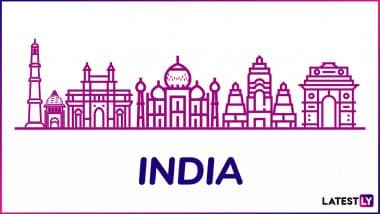Kohima, Jan 26 (PTI) Former Nagaland chief minister S C Jamir on Sunday lamented that over the years, the 16 Point Agreement was maligned by vested interests, including those who were enjoying the fruits of statehood.
In their mistaken and often comforting belief of complete knowledge and factual consciousness, people were perilously inclined to apply distorted logic, analyse half-cooked information and draw faulty conclusions on matters requiring a detailed and meticulous understanding and scrutiny, he said.
Jamir, the only survivor among the 21 signatories to the 16 Point Agreement, was speaking during the Governor's "At Home" ceremony on the occasion of the 71st Republic Day and unveiling of a plaque, rechristening the Durbar Hall as the Dr Imkongliba Hall at the Raj Bhavan here.
The 16 Point Agreement, signed between the Naga People's Convention (NPC) and the Government of India in 1960, led to the formation of the state of Nagaland in 1963. Imkongliba was the first president of the NPC and also the chairman of the interim government in 1963.
As the only living signatory to the agreement, Jamir placed on record the incontrovertible reality that the NPC always endeavoured to create a favourable political environment in the region to lucidly and unequivocally highlight the foundational basis of the legitimate demands and long-felt political aspirations of the Nagas before the Government of India.
He recalled that the 16 Point Agreement was evolved after exhaustive and widespread deliberations by the representatives of the 16 tribes of Nagaland, and it was a prominent milestone in the chequered political history of the Nagas.
The solemn and unanimous resolution of the NPC was to salvage the hopes and aspirations of the Naga people, he said, adding that the agreement was conceptualised and drafted very consciously and judiciously, factoring in all the prevailing exigent and strenuous socio-political realities so as to act as a basis for an honourable resolution to the vexed Naga issue.
After examining in depth the historical and political records of the Naga National Council, the NPC included Article 371(A) as one of the most important demands during the negotiation with the prime minister of India in 1960, he said.
In this, Jamir said the younger generation, especially young political leaders of the state, should clearly understand how and why the NPC emerged in the Naga political scenario, so that a true perspective could come out as regards its ideas, ethos, activities and goals.
The entire population had to face an acute famine and consequently, people died of starvation, he recalled.
Fear and suspicion dominated the minds and souls of the people. These were long, gloomy and agonising nights for the Nagas, Jamir said, adding that in this dire situation, the NPC was organised and operationalised to redeem the pride and honour of the Nagas.
There were only two options left -- to surrender and again become a district of Assam or find an alternative to safeguard the political entity of the Nagas, he said.
The NPC went for the second option and because of that the Nagas had their elected government today to shape their future according to their own choice and design, he added.
Dwelling on the present scenario, Jamir said the greatest need of the hour was to recognise and conform with the contemporary realities.
In his address, Governor RN Ravi said today, many of us could only try and imagine under what extraordinary circumstances people walked together, keeping their heads cool, taking whatever decision was best for those who were caught in the crossfire.
"I salute their extraordinary courage and political maturity because by not getting swayed by the emotions of the people, they could assess what was in their best interest," he said.
Chief Minister Neiphiu Rio and Imkongliba's son, Tali Longkumer, also spoke on the occasion.
(This is an unedited and auto-generated story from Syndicated News feed, LatestLY Staff may not have modified or edited the content body)













 Quickly
Quickly





















